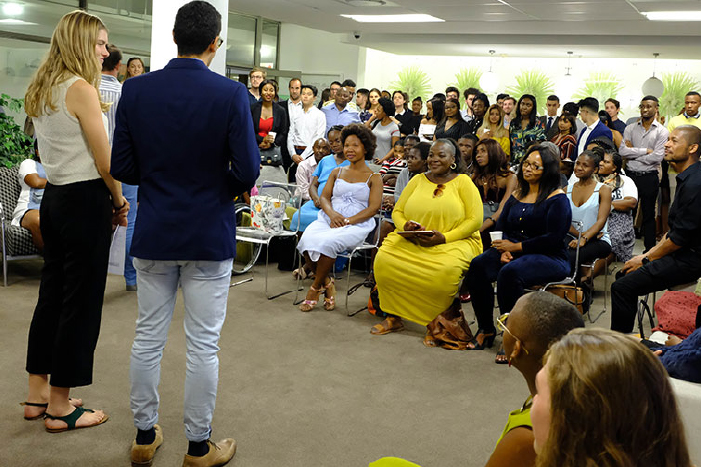
The work done by this organisation has had a number of small businesses take flight. Started by a group of students from UCT a few years ago, to date, more than 100 enterprises have been assisted by this organisation.
Entrepreneurship could be the answer to South Africa’s many challenges, including eradicating unemployment and poverty.
Phaphama SEDI an enterprise consulting organisation that has set its efforts to assist young entrepreneurs in Cape Town townships like, Langa, Khayelitsha, Philip among others, is that answer. The name Phaphama means rise in IsiXhosa while SEDI means a star in SeSotho.
It was formed in 2014 by students from the University of Cape Town to assist locals who want to run successful enterprises. Some of these lacked the support they needed to succeed in what is known as a tough thing for one to embark on, especially for black people who are not afforded the same opportunities as white people who are also in business.
According to the organisation, it is the idea that small businesses are the future of South Africa that made these young people start this organisation.
“Students and youth have the agency to drive change in our country but lack practical experience. At Phaphama we believe that it is at this intersection, between education and entrepreneurship, that we can increase social awareness and make a more economically inclusive South Africa,” said the organisation.
The organisation works with students from the university who are innovative, passionate about making societal change, and need practical experience. They are paired with entrepreneurs who need help.
“We connect these students with exceptional small and medium enterprises based in Khayelitsha and Philippi, who lack the necessary support to meet their entrepreneurial goals.”
The organisation said since its inception, it has identified ways of making these entrepreneurs become successful.
“We have found that the increased entrepreneurial capacity is only one of many facets of Phaphama: networking, support, relationships, and compassion grow from the ground of our organization,” said the organisation.
The programme also helps the students who work as student consultants as they gain valuable skills and knowledge.
To counter the challenges faced by entrepreneurs during what is now known as a new normal, the team has launched a research unit. This unit will help give SMMEs an insight into their business to make them more sustainable and to find ways of making the informal economy work for the people it was intended for.
“The mandate of the Phaphama research team will be to spark academic interest in the informal sector. The informal economy is a vital source of employment for many South Africans. However, it is under-researched and misunderstood, leading to ineffective policies and support to this part of our economy. The research team will aim to contribute to literature around the informal economy and to spark interest in young academics into this vital sector.”
Do4SA NPC
Standard Bank
Branch: 024210
Acc. Number: 371 278 627
Swift Address: SBZA ZA JJ
Subscribe to The Altruist monthly newsletter which will help decision-makers gain a ground level understanding of the dynamics of poverty.